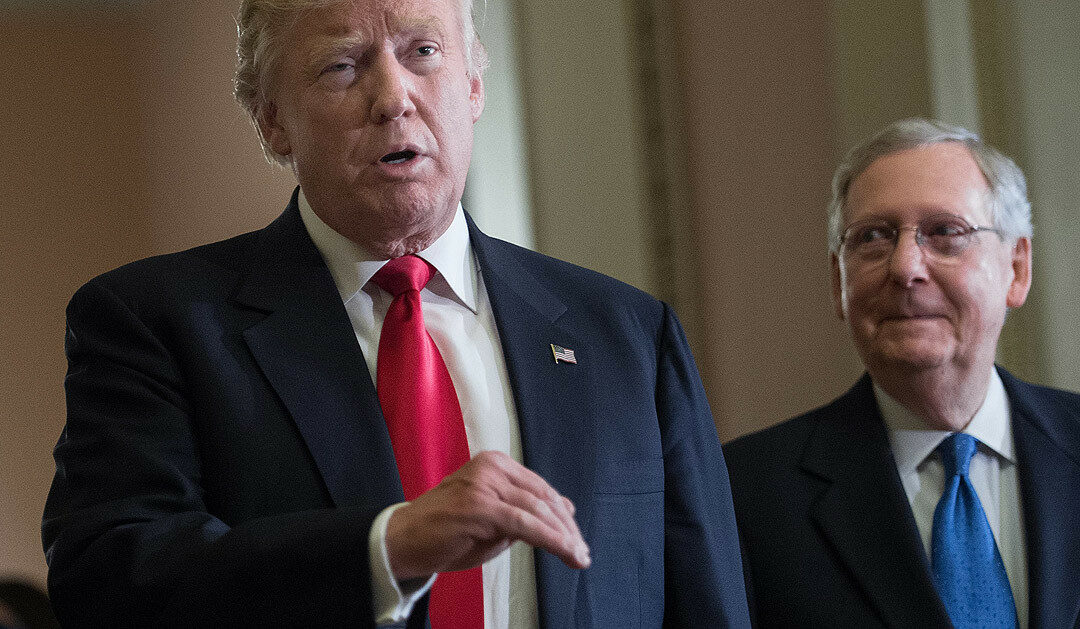Mitch McConnell made it clear today that if the House impeaches President Trump, a trial in the Senate is unavoidable.
But how the Senate majority leader proceeds from there is far less known.
Should the impeachment spotlight turn to the Senate in the coming weeks, McConnell — who faces a reelection fight next year — will confront the dual pressures of minimizing political pain for his Senate majority and ensuring legitimacy and a sense of fairness for what would be only the third impeachment trial of a president in American history.
McConnell said today he was bound by existing Senate rules governing the impeachment and conviction process, amid speculation that he could simply ignore the specter of putting Trump on trial.
Senior Republican aides had worked to try to tamp down that notion over the weekend.
“I would have no choice but to take it up,” McConnell said during a CNBC interview. “How long you’re on it is a whole different matter, but I would have no choice but to take it up, based on a Senate rule on impeachment.”
The Kentucky Republican — who hasn’t hesitated in the past to revise Senate rules to benefit Republicans, specifically the president’s judicial nominees — stressed he would not change them to aid Trump.
That move would require the support of 67 senators, almost certainly an insurmountable threshold.
“The Senate impeachment rules are very clear,” McConnell said. “The Senate would have to take up an impeachment resolution if it came over from the House.”
Other than those statements, McConnell has given few public clues as to how he would proceed, and several Republican and Democratic officials on Monday cautioned that it was far too premature to predict how one of the most polarized Senates in decades would approach Trump’s trial.
Furthermore, the two previous presidential impeachment trials — of Andrew Johnson in 1868 and Bill Clinton in 1999 — were led by a Republican-controlled Senate with a Democrat in the White House.
This time, Senate proceedings would be steered by a majority leader of the same party as that of the president on trial.
“This is uncharted territory,” said one senior Republican official, who, like others, spoke on the condition of anonymity to sketch out hypothetical scenarios.
Why now?
The moments that moved Pelosi and House Democrats toward impeachment.
McConnell was a third-term senator during Clinton’s impeachment trial — when he voted to convict the Democratic president on perjury and obstruction of justice charges, although Clinton was acquitted.
Now, McConnell is abiding by a 1986 memorandum written by then-Senate Parliamentarian Robert Dove, who concluded that Senate rules call for a “rapid disposition of any impeachment trial” and also require at least two-thirds’ support to avoid taking up the question of trying someone who had been impeached.
Information from that memo, sent to reporters over the weekend, was also distributed to Republican senators, according to a senior GOP aide.
“McConnell knows the rules about as well as anybody I’ve ever known,” said former Senate majority leader Trent Lott (R-Miss.), who held McConnell’s job during Clinton’s impeachment trial. “He also will have the best possible advice on what the Constitution requires.”
